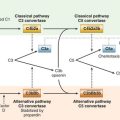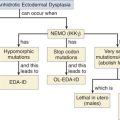CASE 50
MG, a 50-year-old mother of two, was recently diagnosed with breast cancer. Despite favorable histology and hormone receptor typing of the tumor, indicating a projected good response to taxol and other chemotherapy, and lack of any nodal involvement, she has had trouble coming to grips with the diagnosis. She has been referred to the psychiatric service for treatment of depression. In addition, recent blood work at the hospital, along with some functional studies, suggests a subtle impairment in immune functioning, which her general practitioner is concerned might impact on longer-term prognosis. What are your concerns? What is the evidence that MG’s mental state might influence her disease? What might be done to address this issue?
QUESTIONS FOR GROUP DISCUSSION
RECOMMENDED APPROACH
Implications/Analysis of Laboratory Investigation
Depression has been linked to low serotonin levels, and thus antidepressants that prevent the reuptake of serotonin are prescribed for these patients. As such, one would expect that antidepressants that block the reuptake of serotonin (e.g., fluoxetine [Prozac]) would reverse immunosuppression, if a deficiency is the mechanism by which the immune system is depressed. However, studies in rodents have shown that acute administration of fluoxetine led to a decrease in mitogen-induced proliferation. This does not obviate a correlation between depression and decreases in lymphocyte proliferation but rather emphasizes that other genes may contribute to depression.






